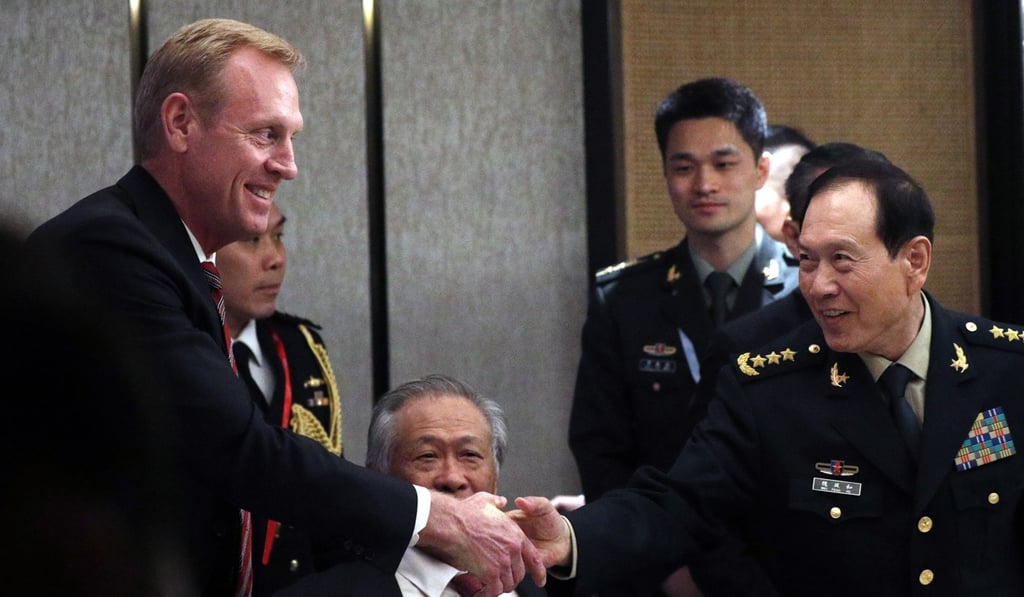Advertisement
Chinese general tells US to stop using Taiwan, South China Sea to stir up trouble
- Washington’s support for Taipei sends ‘wrong message’ to independence-leaning forces on self-ruled island, Lieutenant General Shao Yuanming says at Shangri-La Dialogue
- Chinese military will ‘resolutely defend the unity of our motherland at all costs’, he says
Reading Time:3 minutes
Why you can trust SCMP

A senior Chinese military officer has accused the United States’ top defence official of using sensitive issues like Taiwan and the South China Sea to promote instability in the Asia-Pacific region.
Speaking on Saturday at the Shangri-La Dialogue in Singapore, Lieutenant General Shao Yuanming, deputy chief of the Joint Staff Department, said that acting US defence secretary Patrick Shanahan, in an earlier speech at the same event, had sent a “terribly wrong” message to independence-leaning forces on the self-ruled island.
“The one-China principle is the political foundation of Sino-US relations and the common consensus in the international community,” Shao told a press conference.
Advertisement
“[But] recent words and deeds released by the US side have sent terribly wrong signals to Taiwan’s independence forces, which could undermine regional peace and stability.”

Advertisement
Any efforts to promote independence for Taiwan would face staunch opposition, he said.
Advertisement
Select Voice
Choose your listening speed
Get through articles 2x faster
1.25x
250 WPM
Slow
Average
Fast
1.25x